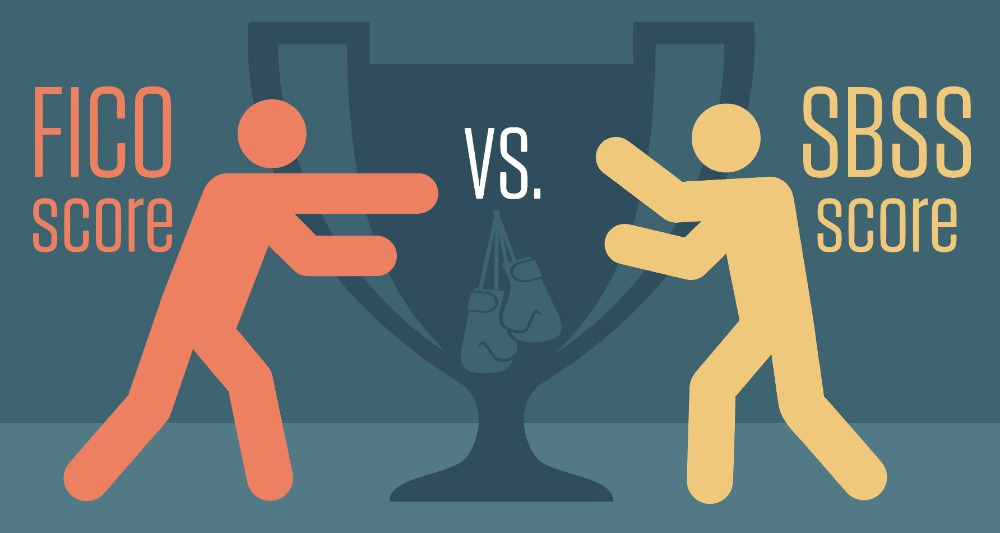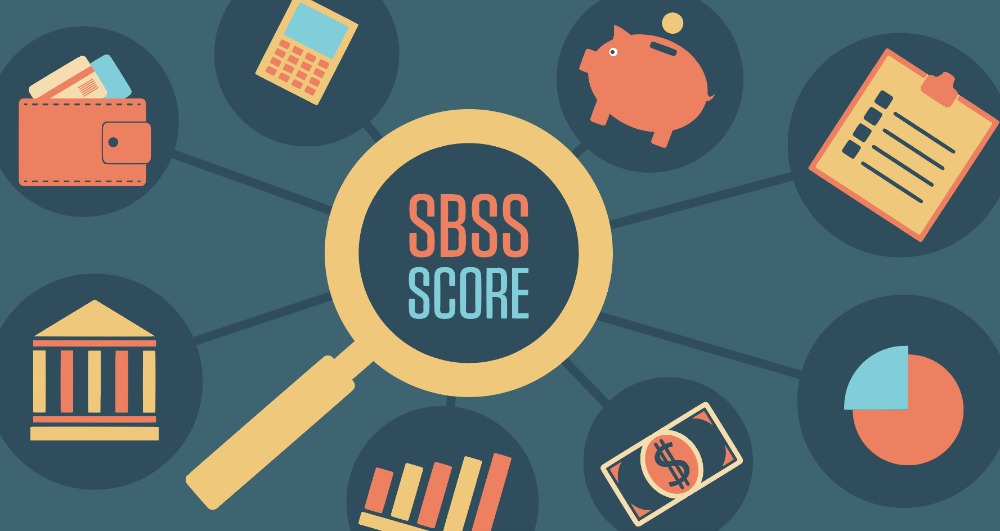
Sponsored by LoanMe, a licensed lender that offers loans to small businesses and sole proprietorships, with loan amounts up to $250,000 in most covered states and also feature same day or next day funding.
Just when you thought you understood all the acronyms and jargon associated with small business, credit scores, and the federal government, another one emerges that may not be entirely clear: SBSS, which stands for Small Business Scoring Service.
SBA’s loan guaranty processing center has been using SBSS scores for a number of years to review non-delegated loans submissions.
The SBA began using the minimum credit score control as part of the Small Loan Advantage Pilot in June 2012.
They then expanded their use to all regular 7(a) loans under $350k around July 2014.
If a business doesn't have a score over 140, it will probably not qualify for an SBA loan. This is why alternative lenders are so important to keeping small businesses growing. The majority of newer small businesses won’t qualify for a prime loan through the SBA, and therefore, benefit from working with an alternative lender instead. Since July 2014, SBA set a minimum SBSS score of 140 for all regular 7(a) SBA programs.
Created by Fair, Isaac and Company (FICO) in the early 1990s, the SBSS Score is one of the three main business credit scores. Though FICO is commonly known for their tracking of personal credit, they also work with businesses to evaluate their credit. The SBSS score is the only business credit score used by the U.S. Small Business Administration to evaluate businesses looking to secure new loans under $350,000.
“Just like personal credit score gives lenders a snapshot history of your financial responsibility as an individual, a business credit score reveals how timely a business pays its bills to vendors,” explains Joshua Schnoll, Senior Director of Product Marketing for FICO.
The SBSS Score is created via FICO’s proprietary automated processes. It functions to minimize the time and expense of evaluating a small business applicants’ credit risk. It’s a powerful and useful tool for lenders interested in working with small business owners.

More Credit for More Small Businesses.
The idea behind the score is simple: By making it easier for lenders to evaluate risk, more small business owners will be able to obtain loans more quickly than ever before.
To make small business funding easier and faster, the SBSS Score was born. It’s a rigorous and standardized way to deliver information about a small business. It’s also free from bias and time-consuming manual evaluations of a small business’s financial track record. It differs from the other business credit scores due to FICO’s long history evaluating personal credit.
The SBSS Score has a distinct, yet close, relationship to a small business proprietor’s personal credit history.
Why Do You Need to Know Your SBSS Score?
“It’s the one credit score all business owners should know, but many have never heard of it because until now, it’s been hard to get your hands on it,” writes Levi King, CEO of Nav, one of the online credit monitoring services. It provides small business owners with their SBSS Score, stated in an email to Business.com. “Banks aren’t required to disclose that they use the FICO SBSS score and very little information exists about it online. More lenders are using it because it helps them make faster, more accurate lending decisions. This affords them the time to make decisions in hours, not days.”
In addition to the SBSS Score, the other main business credit scores include D&B's Paydex Score, Experian business score, and Equifax business score. According to FitSmallBusiness, Dun & Bradstreet’s PAYDEX credit score has a maximum score of 100, with 80 being considered a good score. Experian also has a zero to one hundred rating system, with 70 a good score there.
Unfortunately, there is little consistency when you try to compare the meaning of a score from one credit rating agency to another. All the scores are based on proprietary algorithms. It can be difficult to pin down what goes into them. The SBSS Score has the closest relationship to one’s personal credit history, so making sure your personal FICO score is as strong as it can be improves your business’s FICO SBSS Score.

What’s a Good SBSS Score?
The FICO SBSS Score, which ranges from 0-300, is used by the SBA, the U.S. Small Business Administration, to prescreen loan applicants.
Because the SBSS is now so widely used, it is possible to get it through an online credit monitoring service. Thousands of lenders use SBSS Score to determine if they should grant loans or lines of credit to a small enterprise. Each lender may have a different cut off value, but generally a score of over 160 or 180 is considered strong enough for a loan under $1 million. A lower score qualifies you for a smaller loan.
According to FICO, the SBSS Score is a boon to both small businesses and to the lenders, whether banks, credit unions or alternative lenders, who are eager to work with them. It allows lenders to achieve a more profitable small business credit portfolio and make better, more consistent decisions around their lending.
What goes into your SBSS Score?
FICO’s SBSS Score may take into account collections management, data reporting, billing tracking, business services and more. Though FICO will not reveal all the factors that go into the SBSS Score, the business owner’s personal FICO score is one of them. The scoring also uses an analysis of pooled data from FICO clients.
According to ScoreInfo.org, a site run by FICO, the SBSS Score takes into account two main kinds of information:
- Commercial data about the business, such as payment history on previous credit obligations.
- Data about the business principal(s), such as financial data including personal credit history.
Data may include details about the business from the loan application, financial statements provided by the business, such as audited accounts or management accounts, information about how the business pays its suppliers or vendors, factors in the business repository report prepared by a member-owned consortium that archives data from member banks, and factors that address how the business pays its other financial obligations.
The SBSS Score is generated by looking at a combination of personal and business credit history and includes the business' history of paying vendors and lenders. This means a brand new business with no business credit history, will result in a lower SBSS Score. It will rely on personal credit history only. In fact, according to FitSmallBusiness, 50-90 percent of the SBSS Score is generated by the small business owner’s personal credit history.
The age of your business, its cash flow, and business assets can also affect the SBSS Score.
Get savvy about your enterprise SBSS Score as soon as possible and be ahead of the game when it’s time to secure a loan and grow.
If you’re not ready for a bank loan and are seeking alternative financing, it would be wise to verify if the lender reports on-time payments to the credit bureaus. Monthly reporting to the credit bureaus may help improve your SBSS credit score.
